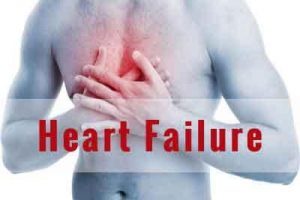- Home
- Editorial
- News
- Practice Guidelines
- Anesthesiology Guidelines
- Cancer Guidelines
- Cardiac Sciences Guidelines
- Critical Care Guidelines
- Dentistry Guidelines
- Dermatology Guidelines
- Diabetes and Endo Guidelines
- Diagnostics Guidelines
- ENT Guidelines
- Featured Practice Guidelines
- Gastroenterology Guidelines
- Geriatrics Guidelines
- Medicine Guidelines
- Nephrology Guidelines
- Neurosciences Guidelines
- Obs and Gynae Guidelines
- Ophthalmology Guidelines
- Orthopaedics Guidelines
- Paediatrics Guidelines
- Psychiatry Guidelines
- Pulmonology Guidelines
- Radiology Guidelines
- Surgery Guidelines
- Urology Guidelines
BP drug Aliskiren may delay progression of heart failure and improve survival, finds study

BP drug Aliskiren can delay the progression of congestive heart failure and lengthen survival rates of heart failure patients, researchers at the University of Arizona College of Medicine-Phoenix have found.The study has appeared in the International Journal of Medical Sciences.
Aliskiren is the first in a class of drugs called direct renin inhibitors and is used for essential hypertension. It is indicated for the treatment of hypertension in adults and children ≥6 years. The drug is not commonly used because of adverse effects and it's safety profile.
The Cardiovascular Disease Research group from the UA College of Medicine-Phoenix Department of Internal Medicine used new technology to evaluate changes in muscle mass and fluid retention over time in heart failure. Using this noninvasive technology, they showed that Aliskiren blocked muscle loss, prevented fluid retention and saved lives.
More than 5 million Americans suffer from congestive heart failure, a chronic progressive condition that comprises with a blood-pumping capacity of the heart. Oedema and muscle wasting occur during the progression of heart failure and neither is always clinically evident.
"This FDA-approved drug has the potential to improve the quality and extend the life in properly identified heart failure patients," said Ryan Sullivan, DVM, assistant professor in the college's Department of Internal Medicine and lead author of the study, "Normalizing Plasma Renin Activity in Experimental Dilated Cardiomyopathy: Effects on Edema, Cachexia, and Survival," published in the August 2019 edition of the International Journal of Molecular Sciences, as part of a Special Issue Heart Failure: From Molecular Basis to Therapy.
"That's an extra 5.6 years with loved ones that otherwise would not be possible. Obviously, further studies are needed, along with human clinical trials, but we are excited about our research direction and what those outcomes could mean for the college and the people of Arizona and beyond."
"Heart failure is a rapidly increasing cause of disability and death," Dr. Sullivan said. "Patients suffer from progressive muscle wasting and fluid retention, which leads to discomfort, shortness of breath and fatigue. There is a need to better measure muscle wasting and fluid retention to identify effective methods for treatment and prevention. These exciting findings demonstrate new approaches that may guide future care for heart failure patients."
One of the major challenges in heart failure management is detecting and reproducibly quantifying edema and muscle mass over time in response to interventions that treat breathlessness, clinical symptoms of heart failure and cardiac cachexia, which is unintentional severe weight loss associated with heart failure.
The team identified and implemented the technology known as QMR (quantitative magnetic resonance) as a method to objectively measure edema development longitudinally throughout the disease progression. In addition, the device captures changes in body fat and lean muscle mass, which are associated with poor prognosis in heart failure patients.
This technology has potential applications in monitoring and adjusting individual treatment protocols by using a precision medicine approach for clinical heart failure patients.
For further reference log on to:
Normalizing Plasma Renin Activity in Experimental Dilated Cardiomyopathy: Effects on Edema, Cachexia, and Survival
AliskirenBP drugcachexiadelaydilated cardiomyopathyedemafindsheart failureimproveInternational Journal of Medical Sciencesneprilysinplasma renin activityprogressionsarcopeniastudysurvival
Source : Press release,Inputs from International Journal of Medical SciencesNext Story
NO DATA FOUND

Disclaimer: This site is primarily intended for healthcare professionals. Any content/information on this website does not replace the advice of medical and/or health professionals and should not be construed as medical/diagnostic advice/endorsement or prescription. Use of this site is subject to our terms of use, privacy policy, advertisement policy. © 2020 Minerva Medical Treatment Pvt Ltd